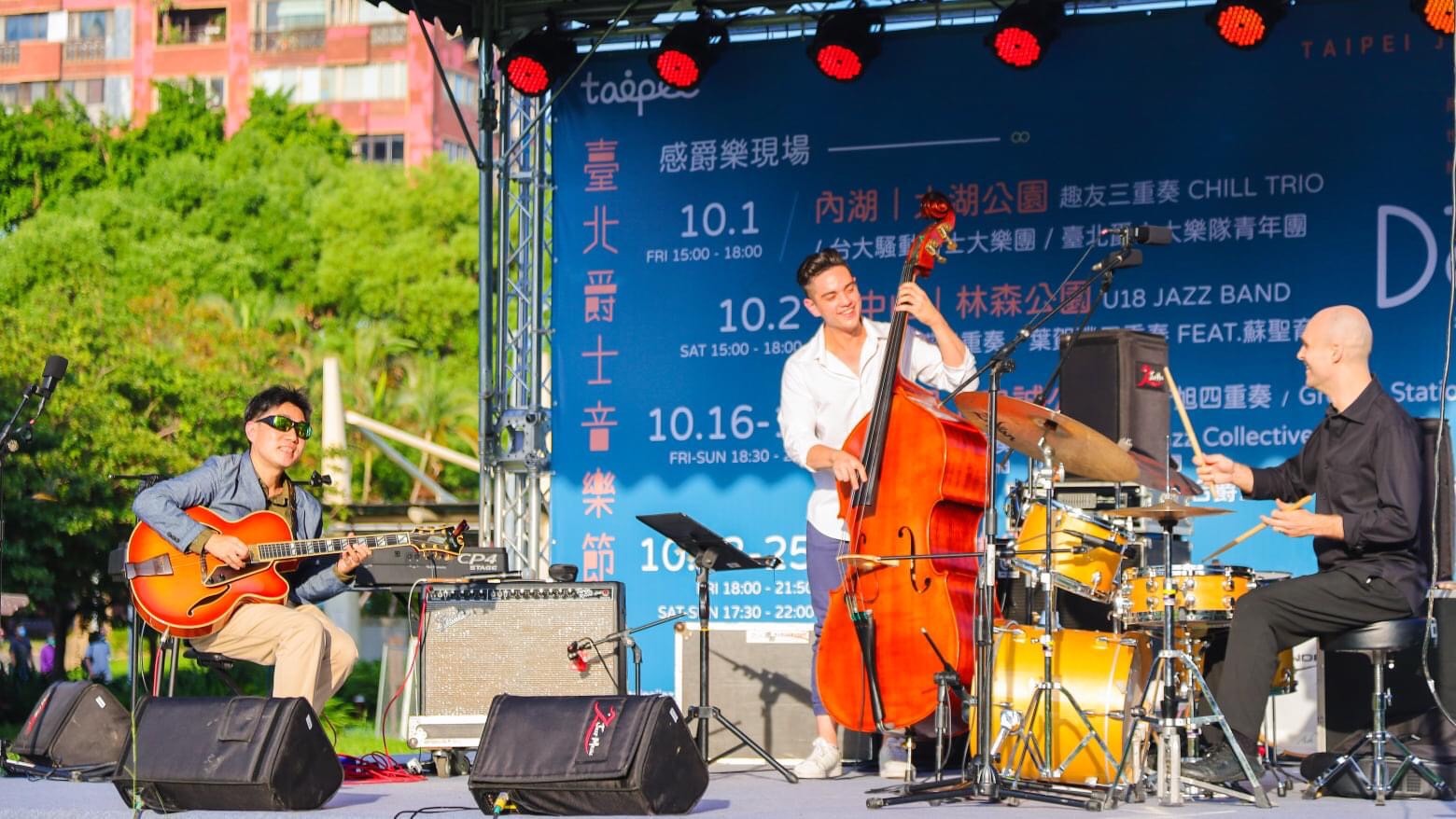Taipei Professional Orchestra: Big Band Jazz Made Possible by COVID-19
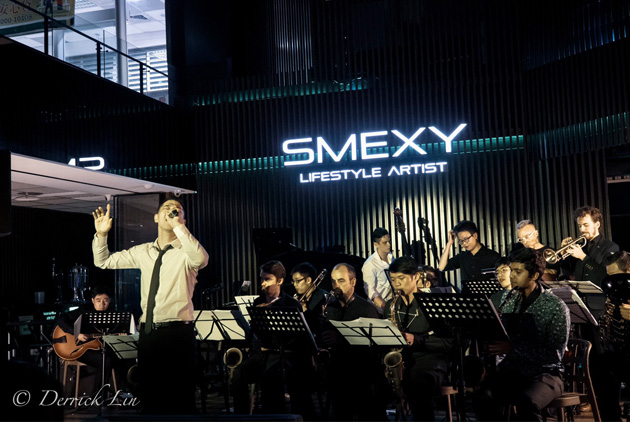
Source:Derrick Lin
Taipei has long provided a musical home for a diverse population of musicians hailing from Southeast Asia, Europe, North America and, of course, East Asia. This year, however, something entirely new is set in motion as a result of the pandemic.
Views
Taipei Professional Orchestra: Big Band Jazz Made Possible by COVID-19
By Alex Morrisweb only
Due to a convergence of annual Asian migrations connected to the Chinese Lunar New Year holiday and border closures instigated by various nations’ responses to COVID-19, many musicians of both Chinese cultural heritage as well as “cultural transplants” to Asia have been stranded in Taipei for an extended period of time—an influx that has significantly altered the demographics of the local music community.
One of the notable, and thoroughly unexpected consequences of these developments is the organization of an entirely new “big band” jazz orchestra in Taipei.
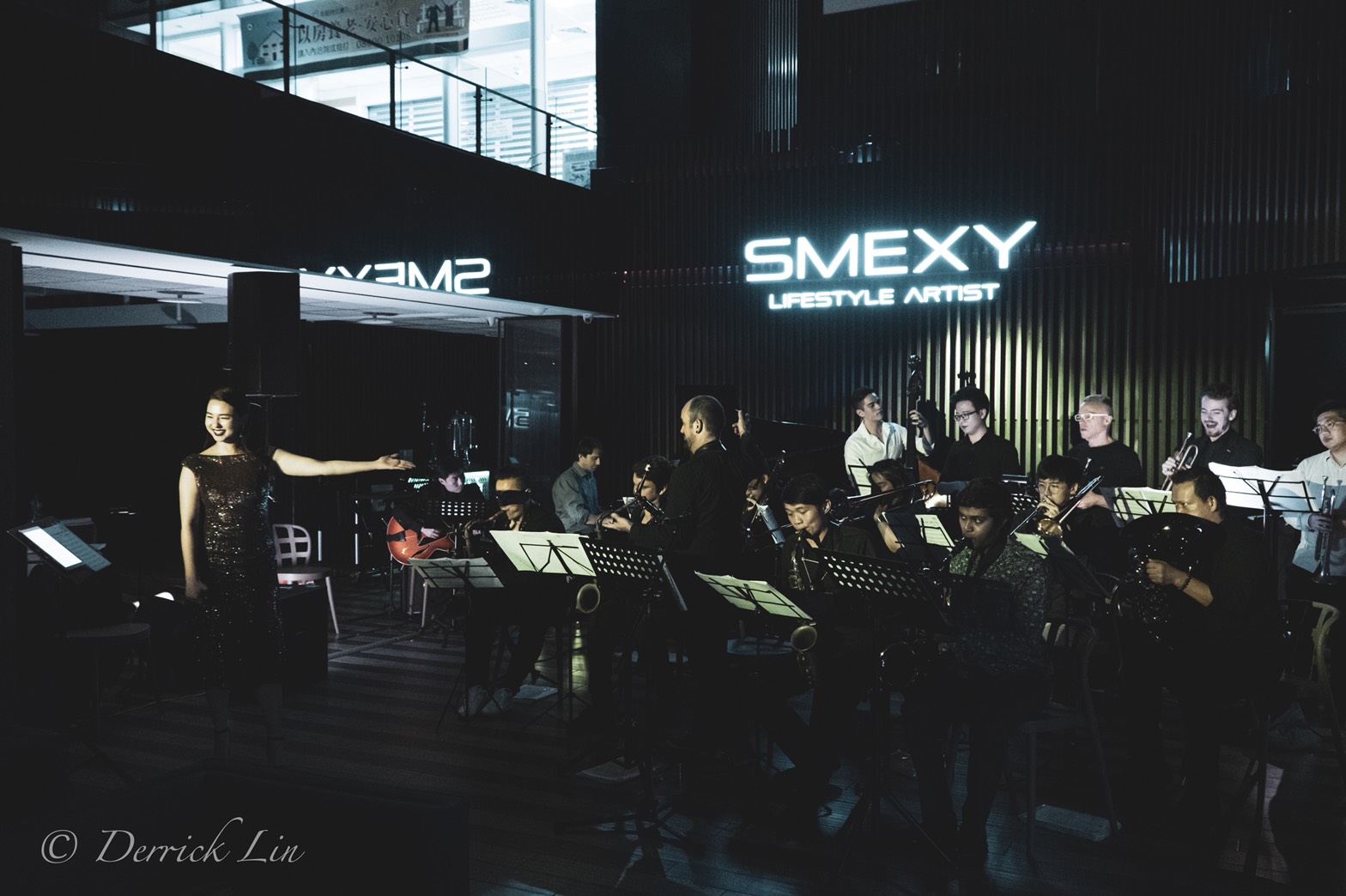
An entirely new “big band” jazz orchestra in Taipei (Source: Derrick Lin)
In a year when most musicians across the globe are out of work and unable to rehearse or perform in any setting, the formation of a new large ensemble, with performances booked through the end of the year, is remarkable.
The musicians interviewed for this article fall into two general groups: those based in Mainland Chinese cities who were in Taiwan during the Lunar New Year festivities to visit relatives or to participate in end-of-the-year performances and had yet to return to their residencies in March, and musicians who are long-term residents of Taiwan, but make the majority of their income touring with popular mandarin-language singers in Mainland China.
Both groups of musicians share a common situation: border closures and quarantine policies resulting from COVID-19 have made continuing to earn a living by performing in Mainland China a virtual impossibility.
When the Mainland Chinese border closed to foreigners in March, it closed suddenly. Effectively, the announcement gave a window of forty-eight hours for foreign nationals to cross the border. With widespread logistical chaos already taking hold of the wider international community, many individuals and families were either unable to return on such short notice or opted to take their chances where they were at the moment: in the case of my interviewees, Taiwan.
A musician interviewed under the condition of anonymity who has been living in Mainland China for many years decided to stay in Taiwan with his wife (a Taiwanese national) after their tickets back to the Mainland were cancelled earlier in the year. He expresses a profound uncertainty common to much of the dislocated music community in Asia:
[All of this has] totally put the brakes on my career. Now I have to reassess everything and look at maybe becoming a full-time teacher and doing a little bit of performance, whereas in China…I was playing five days a week and teaching once every two weeks. It was a choice, but [before] I was working a lot [doing] performance. So that is going to change for me. And the payment scale is is quite different back home. And obviously here in Taipei, it's like nothing is going on right now. It's been a massive change for my career.
Many of the interviewees made similar comments, that in Taipei “it’s like nothing is going on right now” …yet, some live music venues have been operating continuously throughout the entire length of the pandemic. A local jazz bar was full on a Monday night during a recent performance. The Taipei Arena, with a maximum capacity of 15,000 seats, recently reopened its doors, holding large-scale popular music concerts since early August 2020.
I think that the statements of my interviewees concerning “stagnation” in Taipei, rather than referencing how many chances there are to perform, are more connected to the specific economic realities of the local music industry, which, to put it bluntly, are stark: The “pay scale” for musicians is irrefutably lower in Taipei than in many other parts of Asia, especially Mainland China (by my own calculations, teaching a music lesson can yield less than one-quarter of what it would in Beijing, typical small-venue performances yield salaries only twenty to fifty-nine percent of that of comparable performances in the Mainland, and large scale popular concerts, such as those held at the Taipei Arena, can bring as little as half of the going rate for similar work in Beijing or Shanghai for supporting musicians).
However, it is exceedingly important to recognize the relative abundance of performance opportunities still happening in Taiwan—while the pandemic has ravaged the performance industry in cities all over the world, venues in Taipei have remained open, and continue to draw concertgoers.
Alex at Taipei Jazz Festival (Source: Austin Su)
Because of these performance opportunities, the geographic relocations stemming from the pandemic and their personal consequences aren’t always negative. Julian Wittich, a young bassist from a multinational background who was studying in Europe before the pandemic offers a profound contrast to the accounts of professional disaster that have characterized 2020 for most musicians:
Wittich: I was supposed to start school in the Netherlands actually in September, but I feel like, especially in a job like ours where we're creative people [and] our job is ‘freelance,’ I feel like having real life experience working in a field like this maybe for a year is going to be more valuable than going back to school where there are no performance opportunities at all, essentially. So yeah, I'm going to be here for a little while.
Morris: That's interesting. So it seems like this transplant to Taiwan has affected you professionally, but in a positive sense, right? Because now [you] have the opportunity to play a bunch of gigs down here. Is that fair to say?
Wittich: Yeah, for sure. For sure. This whole situation has definitely had its negative impact, you know, but that was more on your personal life and some of the relationships that you once had, or [relationships] are currently strained because of this whole situation…but on the professional side, I do believe that my career has actually kind of taken off a little since the virus hit [laughs], which is pretty…yeah, it's pretty strange to think about it that way, but yeah, it has!
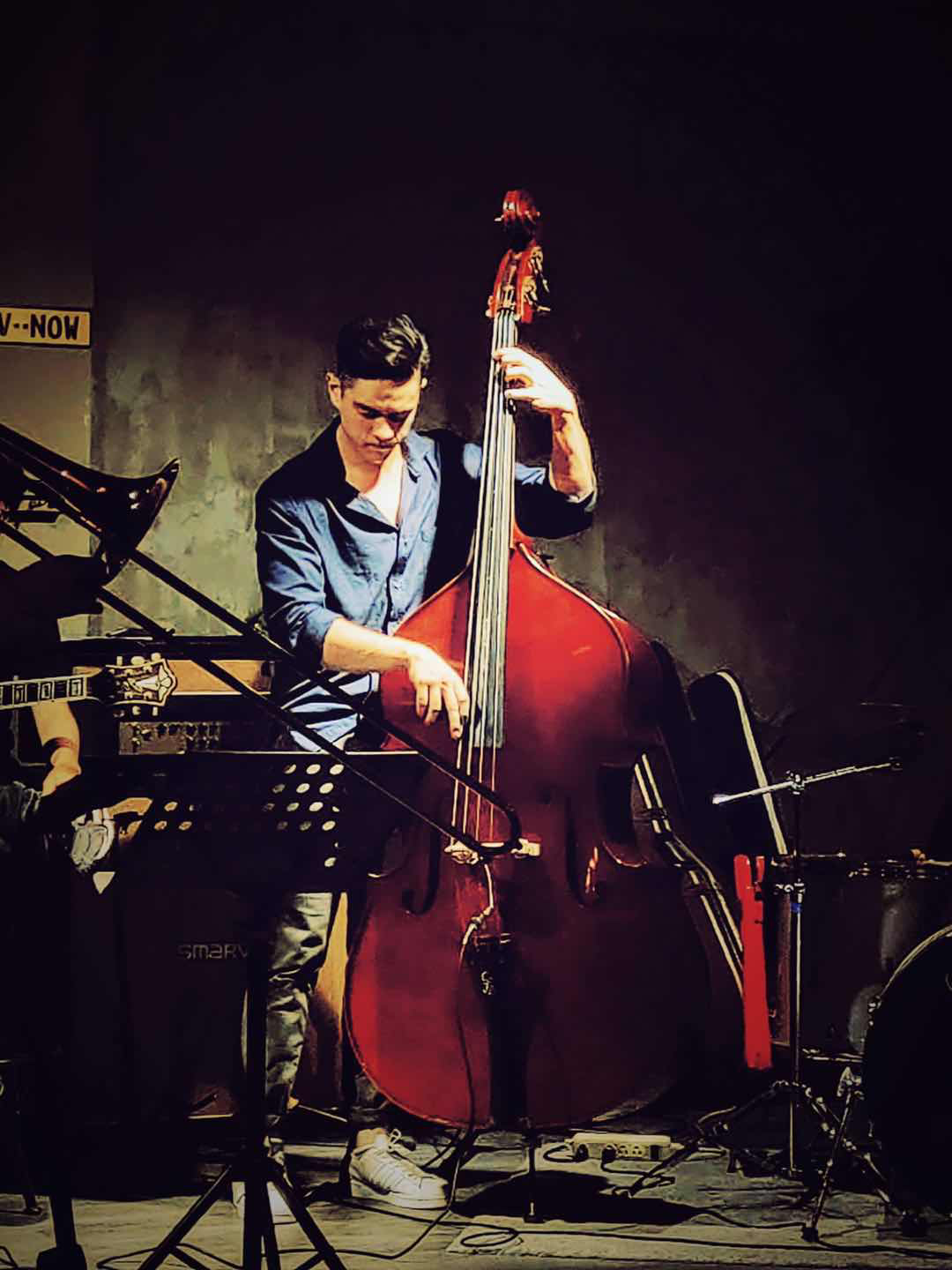
Julian Wittich (Source: Alex Morris)
There have been notable changes in the creative landscape in Taiwan resulting from the influx of musicians connected to COVID-19-related logistic complications.
For instance, multiple full-scale seventeen-plus member jazz orchestras performed at a showcase in a small venue on August 2nd, 2020. Jim Geddes, the leader and organizer of the Taipei Professional Orchestra discusses how these bands are made possible in part by the current circumstances of dislocation for many professional musicians, and the positive consequences that could have on the Taipei music community:
The scene here is a little bit different now, too, because there are, as you said, [non-local] people stuck here. But [like] any good musicians, they still want to play. They still have that urge to get out and do things with the community, with the people that they can be around.
One of the reasons why I [started the big band now] is because I kind of felt before [the arrival of some of the musicians that were dislocated by the pandemic], there weren't people with the real background, someone like Terry [Hsieh] who started the Blue Note Band back in Beijing [referring to the branch of the international franchise], someone like Danny Deysher who really could play lead trumpet and know what the sound is…and these people can talk to the people next to them [in their section] who maybe don't have that experience and they can go, “Okay, well, this is how we do it.” I feel like before [this] influx of musicians, it wouldn't have been as successful…
I think in general, when you raise the level of music in the community, the community at large tends to notice. They tend to notice when better music is being produced…when you have a lot of musicians, they tend to make their own gigs. All of a sudden there's more gigs happening, I think. And then people tell their friends and family. [At the Taipei Professional Orchestra concert], a couple of people came to that concert that are not musicians, but they're jazz lovers, and they said, “I can't believe this.” Actually, one of the guys, he wrote an article about it, and he was just basically saying that back in the seventies and eighties, there was a thriving music scene and it hasn't been that way since. And he says now with the emergence of this big band, I feel like there's a new breath of air in Taiwan right now, with what these musicians are capable of, [how it] evolves, et cetera, et cetera.
So with the big band, I was trying to tell the audience and educate them a little bit about how big band has thrived… I feel like a lot of people were able to get a hold of that. I think the more that we have concerts, high level concerts and are talking more to people about music, I think the more and more people will naturally become interested in that. The better the scene, the better the musicians, the more there is to talk about, more things for people to be interested in. A lot of times when I was seeing [things] get very stale, the audience [was seeing] it as stale too, and they lose interest because there's nothing new coming out. They could very clearly see the musicians aren't into it, that the musicians are just there for a paycheck…people do notice that […] I think finding a way to use this pandemic in a positive way, as it's had so many negatives, you know, is to find the positives and go, “Okay, there's time now, we're being forced to do something different.”
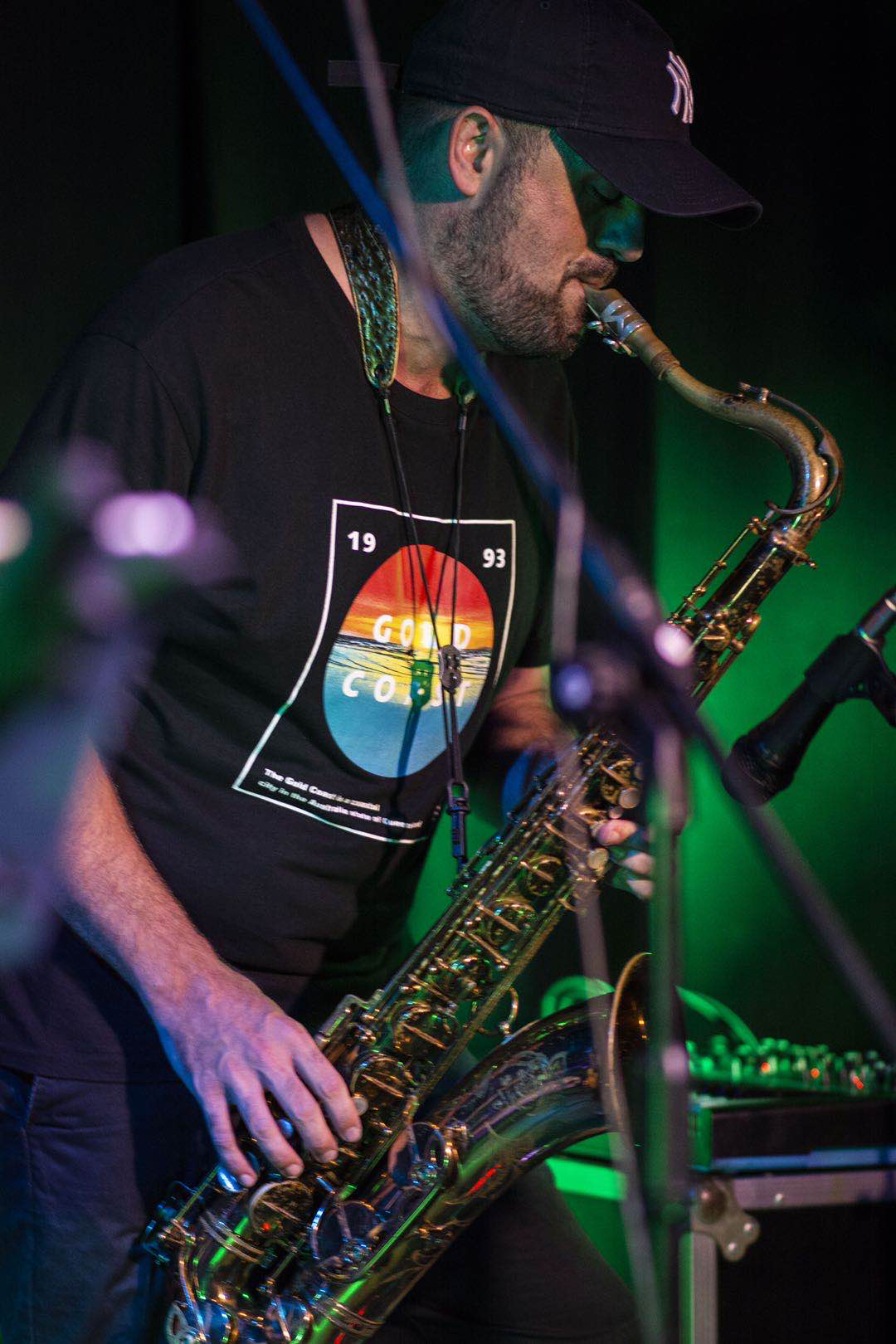
Jim Geddes, the leader and organizer of the Taipei Professional Orchestra (Source: Vicky Sun)
Geddes’ comments above outline a multi-part process that is at the heart of COVID-19’s effect on the music community in Taiwan: First, dislocated musicians find themselves out of work but in a new community that is receptive to their musical ideas and experience.
As a consequence of not being able to work in the same capacity that they were pre-pandemic, dislocated musicians make efforts to enter the local music community, while the performance opportunities in the local music economy are being reorganized around the creative impulses of musicians themselves, as the typical “bread and butter” gigs that keep everybody well-fed but without much time on their hands have ground to a halt.
The result is something new that excites both the community of musicians as well as the community of concertgoers, who are receptive to fresh ideas born out of these transnational/local collaborations. Whether or not club owners and the broader performance infrastructure can capitalize on this creative estuary remains to be seen.
One question that this article has yet to ask is whether or not the positive change predicted by some of my interviewees, particularly Geddes, is possible in the face of the economic realities endemic to Taiwan.
Many of my interviewees pointed out to me that Taipei is not the economic “boom town” that it once was, and mentioned the necessary correlation between a strong, vibrant economy and a thriving musical economy. Long-term economic stagnation, a latent mistrust between club owners and musicians, insular and protectionist tendencies, geopolitical uncertainty and deeply unstable and transient populations of musicians all underscore the difficulties of nurturing a healthy live music scene in post-pandemic Taipei.
Julian and Alex at Taipei Jazz Festival, Linsen Park (Source: 羅曼德)
The next few years will be exceedingly interesting, as musicians like those interviewed are forced to reexamine the trajectories of the careers, and whether or not the reinvestment of musicians’ energies in the local community can bear both creative and economic fruit in the times ahead.

About the author:
Alex Morris is a professional musician based in East Asia since 2010. He has performed around the world with Taiwanese popular artists such as Jolin Tsai and Faye Chan. He holds a degree in Jazz Studies from the Oberlin Conservatory of Music in Ohio.
Have you read?
♦ Yu-Chien Tseng: I Work Hard at Being Myself
♦ Echoing the Sounds of Freedom: Taiwan’s New Box Office Hit ‘Detention’
♦ Award-winning Musician Sangpuy: Music is Life
Uploaded by Penny Chiang


